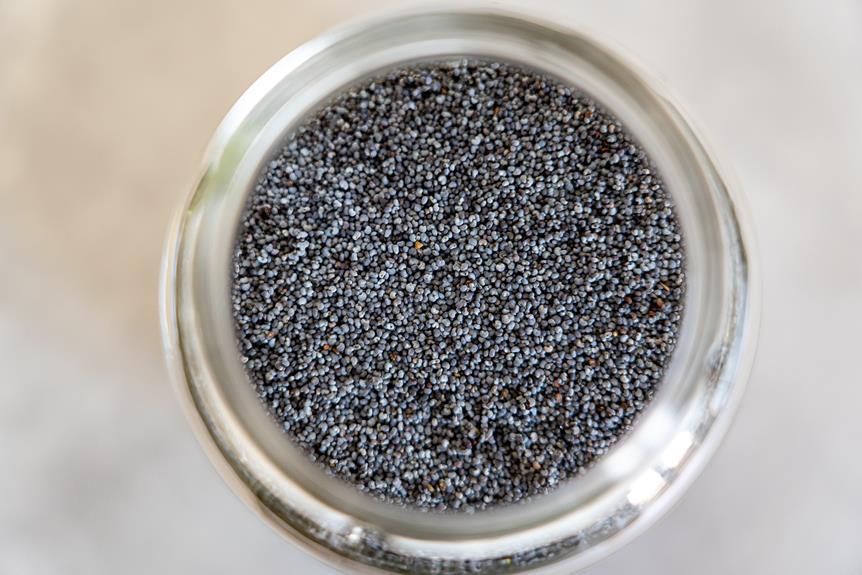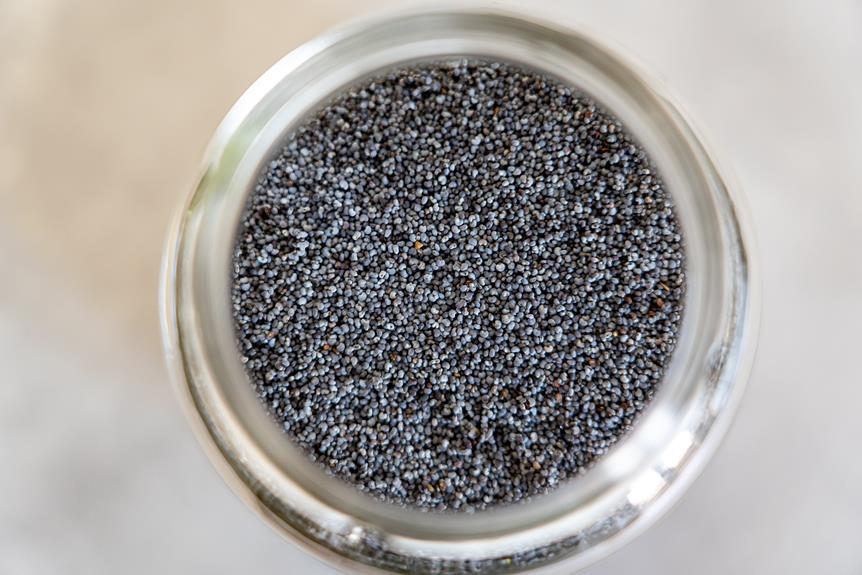They say, "An apple a day keeps the doctor away." But what if it's not just the apple, but the fiber it contains that's truly doing the trick? The surprising effects of fiber on gut health have been a topic of much discussion lately. From its impact on the gut microbiota to its role in digestive regularity and nutrient absorption, fiber seems to hold the key to a healthier gut. But what exactly are these effects, and how can they benefit you? Stay tuned to uncover the fascinating secrets of fiber and its impact on gut health.
Key Takeaways
- Dietary fiber is essential for a healthy diet and supports gut health by nourishing beneficial bacteria and promoting regular bowel movements.
- Fiber acts as a prebiotic, promoting a diverse microbiome and producing short-chain fatty acids with anti-inflammatory effects.
- Fiber adds bulk to stool, preventing constipation, and slows down digestion, aiding in nutrient absorption and cholesterol elimination.
- Increasing fiber intake gradually can help prevent discomfort, and the recommended daily intake for adults is 25-38 grams.
Importance of Dietary Fiber
Dietary fiber plays a crucial role in maintaining optimal gut health. It is an essential component of a healthy diet and is found in plant-based foods such as fruits, vegetables, whole grains, and legumes. Fiber cannot be digested by the human body, but it acts as a source of nourishment for the beneficial bacteria in your gut. By promoting the growth of these bacteria, fiber helps to maintain a healthy balance of microorganisms in your digestive system.
One of the main benefits of dietary fiber is its ability to promote regular bowel movements and prevent constipation. Fiber adds bulk to your stools, making them easier to pass through the intestines. It also helps to regulate the speed at which food moves through your digestive system, preventing both diarrhea and constipation.
Furthermore, a diet high in fiber has been associated with a reduced risk of developing various gastrointestinal disorders, including diverticulitis, hemorrhoids, and irritable bowel syndrome (IBS). The presence of fiber in your diet can help to prevent the formation of diverticula, small pouches in the colon that can become inflamed and cause discomfort. Fiber also helps to soften the stool, reducing the strain on the rectum and preventing hemorrhoids.
In addition to its effects on digestion, dietary fiber plays a role in maintaining a healthy weight. High-fiber foods tend to be more filling, which can help to reduce overall calorie intake. Fiber also slows down the absorption of sugar into the bloodstream, preventing spikes in blood sugar levels and promoting stable energy levels throughout the day.
Fiber and Gut Microbiota
To understand the relationship between fiber and gut microbiota, it is important to explore how fiber influences the composition and function of the microorganisms in your digestive system. Your gut is home to trillions of microorganisms, collectively known as the gut microbiota. These microorganisms play a crucial role in maintaining your overall health by aiding digestion, producing vitamins, and supporting your immune system.
Fiber, which is found in plant-based foods like fruits, vegetables, whole grains, and legumes, serves as a source of nutrition for the gut microbiota. When you consume fiber, it passes through your digestive system largely unchanged. However, certain types of fiber are fermented by the microorganisms in your gut, leading to the production of short-chain fatty acids (SCFAs). SCFAs, such as acetate, propionate, and butyrate, have been shown to have numerous health benefits.
The fermentation of fiber by the gut microbiota not only provides energy for these microorganisms but also leads to the production of SCFAs. These SCFAs have been shown to have anti-inflammatory effects, support the health of the intestinal lining, and help regulate blood sugar levels. Additionally, SCFAs promote the growth of beneficial bacteria while inhibiting the growth of harmful bacteria in the gut.
Furthermore, fiber also acts as a prebiotic, which means it provides nourishment for the beneficial bacteria in your gut. By promoting the growth of these beneficial bacteria, fiber helps to maintain a healthy balance of microorganisms in your gut, which is essential for overall gut health.
Fiber and Digestive Regularity
If you're looking to maintain regular digestion, fiber can play a crucial role in promoting digestive regularity. Fiber adds bulk to your stool, making it easier for waste to move through your digestive system. It acts like a broom, sweeping through your intestines and helping to prevent constipation. When you consume enough fiber, it absorbs water and expands, resulting in softer and larger stools that are easier to pass. This can help prevent the discomfort and straining associated with constipation.
Insoluble fiber, found in foods like whole grains, nuts, and vegetables, adds bulk to your stool and speeds up transit time through your intestines. This helps to prevent constipation and promotes regular bowel movements. On the other hand, soluble fiber, found in foods like oats, beans, and fruits, forms a gel-like substance in your intestines. This softens your stool and helps it pass through your digestive system more smoothly.
It's important to note that increasing your fiber intake too quickly can cause bloating, gas, and stomach discomfort. To prevent this, it's recommended to gradually increase your fiber intake over time and drink plenty of water to help fiber move through your digestive system.
Fiber and Nutrient Absorption
Fiber plays a vital role in your body's ability to absorb nutrients effectively. When it comes to nutrient absorption, fiber acts as a facilitator, aiding in the process and ensuring that your body gets the most out of the food you consume.
One way in which fiber promotes nutrient absorption is by slowing down digestion. Unlike other components of food, fiber cannot be broken down by your body's digestive enzymes. As a result, it remains intact as it passes through your gastrointestinal tract. This slows down the digestion of other nutrients, allowing for a more gradual release into your bloodstream. This slower release helps prevent spikes in blood sugar levels and allows your body to absorb nutrients more efficiently.
Furthermore, fiber acts as a sponge, absorbing water and forming a gel-like substance in your digestive system. This gel-like substance helps to soften and bulk up your stool, promoting regular bowel movements. By keeping your digestive system regular and preventing constipation, fiber ensures that there is enough time for your body to absorb the nutrients from your food properly.
Additionally, certain types of fiber, known as soluble fiber, can bind to cholesterol and bile acids in your digestive tract. By doing so, they help prevent the reabsorption of cholesterol, allowing your body to eliminate it instead. This process can help lower your cholesterol levels and decrease the risk of heart disease.
Fiber and Risk of Digestive Disorders
When it comes to maintaining a healthy digestive system, the role of fiber extends beyond nutrient absorption. Fiber plays a crucial role in reducing the risk of various digestive disorders. Let's take a look at how fiber can help prevent these conditions:
| Digestive Disorder | How Fiber Helps | Recommended Daily Fiber Intake |
|---|---|---|
| Constipation | Fiber adds bulk to your stool, making it easier to pass through your intestines. It also helps stimulate regular bowel movements. | 25-38 grams for adults |
| Diverticulosis | High-fiber diets help prevent the formation of small pouches in the colon, known as diverticula. These pouches can become inflamed, causing diverticulitis. | 25-38 grams for adults |
| Hemorrhoids | Increased fiber intake can soften stools and reduce strain during bowel movements, which can help prevent hemorrhoids from developing or worsening. | 25-38 grams for adults |
| Irritable Bowel Syndrome (IBS) | Fiber can help regulate bowel movements and reduce symptoms of IBS, such as bloating, gas, and abdominal pain. | Varies depending on individual needs |
Including an adequate amount of fiber in your diet can significantly lower the risk of these digestive disorders. The recommended daily fiber intake for adults is between 25-38 grams, but it's important to consult with your healthcare provider to determine the appropriate amount for your specific needs.
Frequently Asked Questions
Can Fiber Supplements Be Used as a Substitute for Dietary Fiber?
Fiber supplements can be used as a substitute for dietary fiber, but it's important to understand the differences. While supplements can provide some benefits, they may not offer the same range of nutrients found in natural sources like fruits, vegetables, and whole grains. It's best to aim for a balanced diet that includes a variety of fiber-rich foods, alongside supplements if needed. Consulting with a healthcare professional can help you determine the best approach for your specific needs.
How Does Fiber Affect Blood Sugar Levels in Individuals With Diabetes?
Fiber can have a significant impact on blood sugar levels for individuals with diabetes. When you consume fiber-rich foods, like fruits, vegetables, and whole grains, it slows down the digestion process and helps to stabilize blood sugar levels. This is beneficial for people with diabetes because it prevents rapid spikes in blood sugar. Additionally, fiber can also improve insulin sensitivity, making it easier for your body to process and regulate glucose. So including fiber in your diet can be a helpful strategy for managing blood sugar levels.
Is There a Recommended Daily Intake of Fiber for Children?
Is there a recommended daily intake of fiber for children? Yes, there is. Children aged 1-3 years should aim for about 19 grams of fiber per day, while children aged 4-8 years should aim for about 25 grams. It's important to ensure that your child gets enough fiber as it helps with digestion, prevents constipation, and promotes overall gut health. Encourage your child to eat a variety of fruits, vegetables, whole grains, and legumes to meet their daily fiber needs.
Does Fiber Have Any Impact on Weight Loss or Management?
Fiber can indeed have an impact on weight loss or management. It helps you feel fuller for longer, which can prevent overeating and snacking on unhealthy foods. Additionally, fiber adds bulk to your diet without adding extra calories, making it a great choice for weight management. It also aids in digestion and regulates blood sugar levels, which can contribute to maintaining a healthy weight. Including fiber-rich foods in your diet can support your weight loss goals.
Can Fiber Intake Help Alleviate Symptoms of Irritable Bowel Syndrome (Ibs)?
Can increasing your fiber intake help alleviate symptoms of irritable bowel syndrome (IBS)? Research suggests that fiber can have a positive impact on IBS symptoms. Adding more fiber to your diet can help regulate bowel movements and reduce abdominal pain and discomfort. It is recommended to gradually increase your fiber intake and drink plenty of water to prevent potential side effects. Remember to consult with a healthcare professional for personalized advice and guidance.




